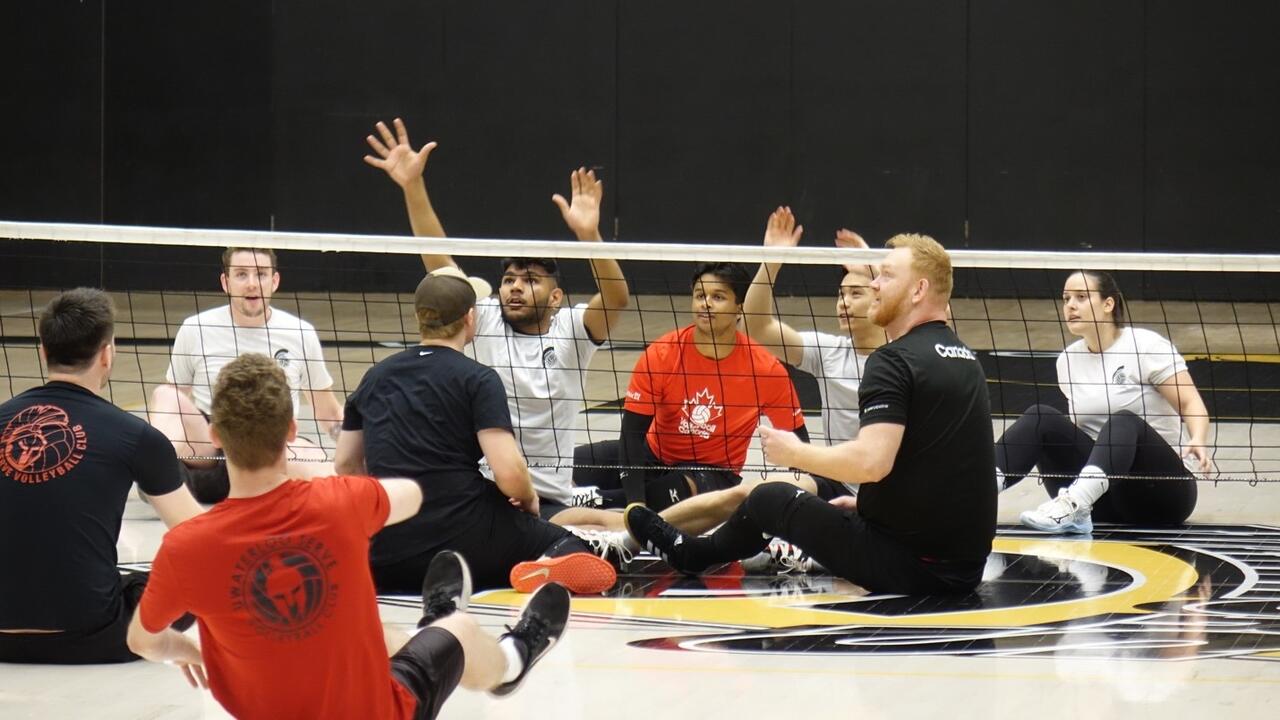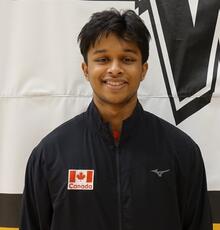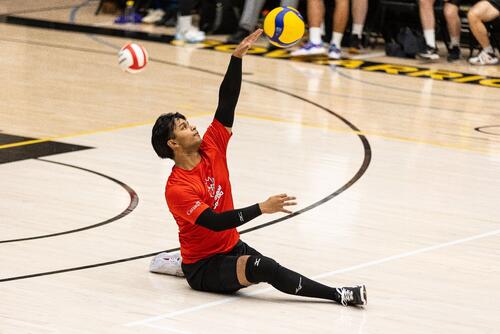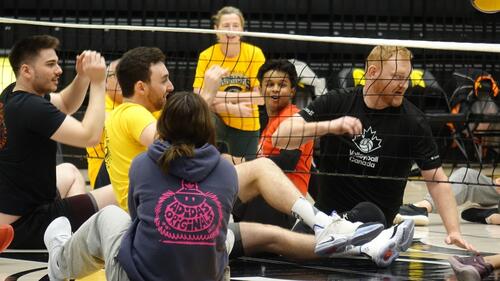
Waterloo athlete represents Canada on national sitting volleyball team
Nasif Chowdhury balances athletic career with study in Recreation and Sport Business program

Nasif Chowdhury balances athletic career with study in Recreation and Sport Business program
By Jon Parsons University Relations A second-year undergraduate student in the Recreation and Sport Business program is a rising star in the sport of international sitting volleyball.
A second-year undergraduate student in the Recreation and Sport Business program is a rising star in the sport of international sitting volleyball.
Nasif Chowdhury represents Canada and helped bring the men’s national team near the pinnacle of the sport in recent competition.
“I was at the Paralympic qualifiers for Tokyo in 2019, and unfortunately we just missed the qualification,” Chowdhury says. “In November 2022, we were in Bosnia and Herzegovina for the Sitting Volleyball World Championships.”
At the recent World Championships, Chowdhury and the Canadian team ended up finishing eleventh, after a hard-fought win over Poland.
As a paralympic sport, international sitting volleyball is for disabled people and has restrictions around which disability categories are eligible to play.
“My specific disability is a limb differential,” Chowdhury says. “I do have both my legs, but one is about eight inches shorter than the other. Because of that, I wear a prosthetic device that a lot of amputees wear.”
The sport has many similarities to volleyball in terms of the rules and gameplay. Some of the key differences are the size of the court, the height of the net and of course that the athletes are sitting on the ground.
But the word “sitting” should not convey the impression that the players are stationary. The athletes are never still, but instead constantly and swiftly shifting along the floor to dig up the ball, set hits and look to block.

Nasif Chowdhury putting in a serve at an exhibition event at the Waterloo Physical Activities Complex. Dr. Christopher Taylor (AVP of EDI-R office) interviewed Nasif Chowdhury and Joyce Barlow on a recent edition of The Curve podcast.
“One of the main rules is that you have to keep your butt on the ground, but there’s some leniency,” Chowdhury explains. “There can be situations where your butt might be off the ground, but your whole lower back is on the ground. That’s totally fine. And you can move on the court by getting up slightly off the ground.”
As with many sports, sitting volleyball has a specific culture and sense of community among athletes. As Chowdhury describes it, the Canadian men’s national team is a group that welcomed him as family.
“We all have disabilities, and we all have amputations or prosthetics,” he says. “And we can all kind of laugh about it and have some fun with it. It’s something you don't necessarily get with regular sports, but we all know each other, we accept it, and we’ll make jokes.”

Nasif Chowdhury (in red shirt) and other participants at an exhibition of sitting volleyball at the University of Waterloo.
Asked to elaborate, Chowdhury recounts something that he’d never heard before getting involved with the sport but that now he’s heard countless times.
“Pass me my leg,” he says with a smile. “Say your teammate is coming off the court and hopping over to the bench, and he’s just like, ‘pass my leg.’ And you grab his prosthetic for him and hand it over.”
Chowdhury and other members of the Canadian men’s sitting volleyball team hosted an exhibition of the sport at the University of Waterloo as part of International Day for Persons with Disability in early December 2022.

Read more
Day features sitting volleyball event open to students, faculty and staff

Read more
Recent philosophy PhD graduate breaking new ground in disability studies

Read more
Sport and Recreation Management student Diane Choi embarks on co-op term with the Canadian Olympic Committee
The University of Waterloo acknowledges that much of our work takes place on the traditional territory of the Neutral, Anishinaabeg, and Haudenosaunee peoples. Our main campus is situated on the Haldimand Tract, the land granted to the Six Nations that includes six miles on each side of the Grand River. Our active work toward reconciliation takes place across our campuses through research, learning, teaching, and community building, and is co-ordinated within the Office of Indigenous Relations.